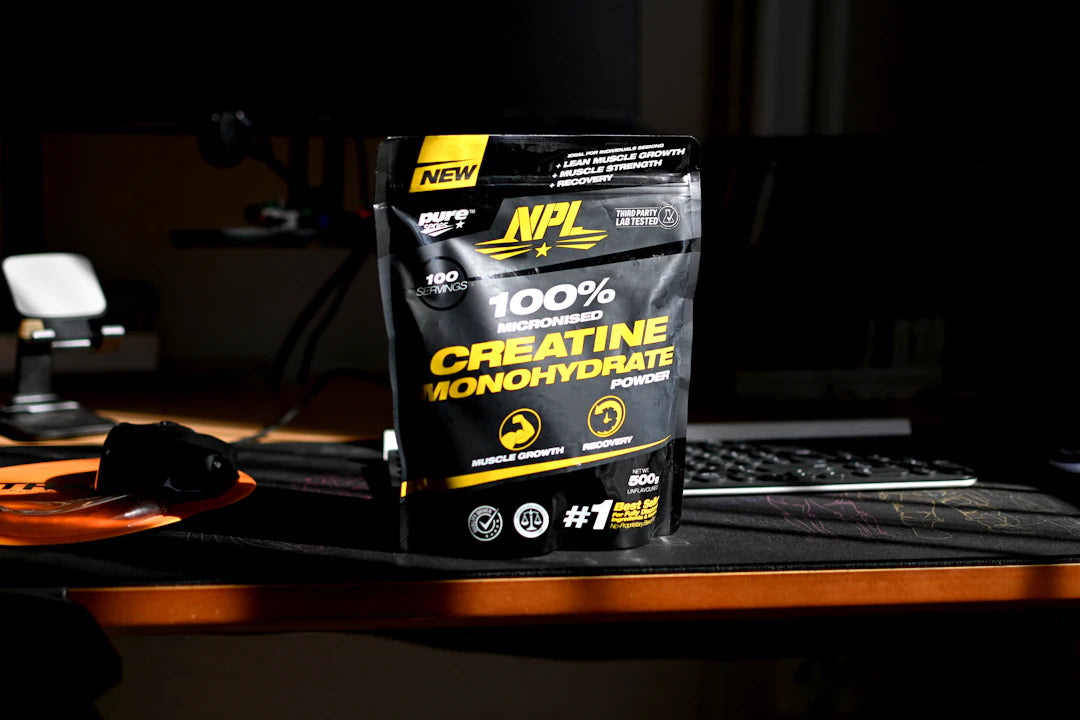
Unlocking the Truth: Potential Side Effects of Creatine Monohydrate
Frequently Asked Questions
1. What is creatine monohydrate?
2. What are the benefits of creatine monohydrate?
3. What are the potential side effects of creatine monohydrate?
4. Who should avoid creatine monohydrate?
5. What are the safe usage guidelines for creatine monohydrate?
Creatine monohydrate has gained significant attention over the years, particularly among athletes and fitness enthusiasts seeking to enhance their performance and recovery. While many swear by the benefits of creatine supplements, it's crucial to understand that every supplement can have potential side effects. In this article, we’ll dive deep into the possible side effects of creatine monohydrate, helping you make informed decisions as you pursue your fitness goals.
What is Creatine Monohydrate?
Before exploring the side effects, let’s clarify what creatine monohydrate is. Creatine is a naturally occurring compound found in small amounts in certain foods and synthesized in the body. It plays a vital role in energy production, particularly during high-intensity workouts. When people refer to creatine supplements, they are often talking about creatine monohydrate, the most researched and commonly used form of creatine.
Benefits of Creatine Monohydrate
Many athletes and bodybuilders incorporate creatine monohydrate into their routines for several reasons:
- Increased muscle mass
- Enhanced strength and power
- Improved recovery times
- Increased anaerobic endurance
However, while the benefits can be compelling, the potential side effects shouldn’t be overlooked.
Potential Side Effects of Creatine Monohydrate
Gastrointestinal Distress
One of the most common side effects reported by users of creatine supplements is gastrointestinal distress. Individuals may experience symptoms such as:
- Nausea
- Diarrhea
- Stomach cramps
This discomfort can often be attributed to taking too high a dose of creatine at once, or a lack of water consumption while using it. To mitigate these effects, it's advisable to start with a lower dose and gradually increase it while ensuring ample hydration.
Weight Gain
Many users report an increase in weight when starting creatine monohydrate. This weight gain can be attributed to two main factors:
- Initial water retention in the muscles
- Increased muscle mass over time with continued use
Water retention might lead to temporary discomfort or bloating, especially for those not used to such changes in their body composition. It's essential to note that this weight gain is not fat, but rather an increase in lean body mass.
Muscle Cramps
Some individuals have reported experiencing muscle cramps while taking creatine monohydrate. While the evidence for this claim is variable, hydration status plays a crucial role. Creatine pulls water into the muscle cells, so if you're not adequately hydrated, you may increase the risk of cramps. Always ensure you're drinking enough fluids when taking any creatine supplements.
Kidney Stress
Concerns about the impact of creatine on kidney health have been discussed extensively. For individuals with pre-existing kidney conditions, using creatine monohydrate may exacerbate these problems. It’s important to consult a healthcare professional before starting any supplement, particularly if you have kidney issues or other health concerns.
Dehydration
Since creatine can draw water into muscle cells, there’s a risk of dehydration if adequate fluid intake isn’t maintained. Dehydration can lead to fatigue, dizziness, and even impaired performance. To avoid this, make sure to drink plenty of water throughout the day, especially during workouts.
Potential Interactions with Medications
Another important factor to consider is how creatine monohydrate can interact with certain medications. Individuals on specific diuretics or medications that affect kidney function should exercise caution. It’s crucial to discuss any supplements you plan to take with your healthcare provider, especially if you're on medication.
Who Should Avoid Creatine Monohydrate?
While creatine monohydrate is generally considered safe for healthy adults, certain individuals may want to avoid it:
- People with pre-existing kidney conditions
- Individuals who have experienced muscle cramps and dehydration
- Those currently taking medications that may interact adversely with supplements
Always consult with a healthcare professional before starting any supplement regimen, particularly if you have underlying health conditions.
Safe Usage Guidelines for Creatine Monohydrate
To maximize the benefits and minimize the risks associated with creatine monohydrate, consider the following guidelines:
- Start with a small dose (3-5 grams per day) and gradually increase as needed.
- Take with plenty of water to minimize gastrointestinal distress.
- Avoid loading phases unless professionally recommended.
- Monitor your body’s response and consult a healthcare professional if you notice adverse effects.
The Bottom Line: Is Creatine Monohydrate Right for You?
Creatine monohydrate can offer impressive benefits for many athletes and fitness enthusiasts. However, mindful usage and awareness of potential side effects are essential for optimizing your health and performance. By being informed and taking the right precautions, you can make the most of creatine supplements while minimizing unwanted effects.
Remember, your journey in fitness should be guided by knowledge and safety. If in doubt, reach out to a professional who can lead you down the right path. Keep pushing toward your fitness goals, but always listen to your body, as it often communicates what you need to know!





